Factors Affecting Fuel Average of Your Car
Fuel efficiency has always been a hot topic on automobile forums. If you visit auto workshops, many people who are there for their vehicles’ maintenance are worried about ‘Fuel Average’ .
This tension is directly proportional to Petrol/Diesel prices as well. Technology never stops at one place and Hybrid vehicles are a proof to this. The Hybrid vehicles are gaining popularity day by day because of their great fuel efficiency. However, there is a lot of room for improvement in Hybrid vehicles, which is why they haven’t been able to completely replace ‘Internal Combustion’ engines.
Internal Combustion Engine’s working principle is very simple. Petrol/ Diesel is burnt in combustion chamber or cylinders, which produces heat energy and that heat energy is converted into mechanical energy, and this way, the vehicle propels. So from this phenomenon, fuel consumption is just normal. But this fuel consumption becomes a concern when you realize that your car is consuming more fuel than what it is supposed to. This situation is alarming for every car owner because low fuel average gives you an indication that there is something wrong.
Fuel average depends on many factors, i will mention all those and discuss some primary reasons, let’s have a look in sequence:
- Correct Tyre Size and Air Pressure
- Correct Engine Oil Grade
- Fuel Quality
- Tuning/Maintenance
- Replacement of Engine Parts On Time
- Driving Habits
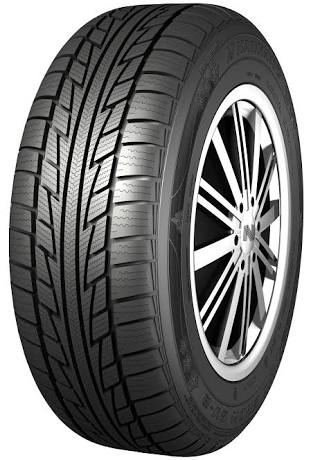
Tyre Size & Air Pressure
Fuel economy of any vehicle depends a lot the “Tyre Size”. Experts recommend installing the right size tyres in your vehicles. Installing over-sized tyres will create resistance and tend engine to consume more fuel hence decrease fuel average. For instance, the company’s recommended Tyre size for your car is 185/65/R15 but you change it to 195/65/R15; by changing only width of tyre from 185 to 195, it totally changes profile of tyre as width of tyre changes side wall height as well. Increase in width of tyre increases road resistance which puts extra load on engine.
Many people change tyre size for extra road grip and comfort. No doubt it improves both things but in return they have to compromise on fuel economy. Now it depends on your personal preferences, whether to be a Hyper Miler or to enjoy an extra comfortable drive. Similarly Air Pressure is an important factor when it comes to a vehicle’s fuel efficiency. The tyre air pressure which is lower than recommended pressure increases load on the engine due to increased road friction. Low air pressure also wears off the tyre earlier.
Some other things are also related with tyres which include:
- Wheel Alignment
- Wheel Balancing
Wheel Alignment
Wheel alignment plays an important role in fuel economy as well as handling and braking of a car. Wheel alignment must be done on time, as unaligned wheels make your vehicle to move in wrong direction. This thing puts an extra load on the engine and also damages tyres. In Pakistan, due to uneven roads and potholes, wheel alignment goes out soon. So I recommend you to get them aligned at least after every 10,000 kilometers.
Wheel Balancing
Wheel balancing is one of the really important maintenance tasks and I have noticed most of us ignoring it. With the passage of time, the tyre weight gets unbalanced which creates vibrations, braking issues and uncomfortable ride. But unbalanced tyres don’t affect fuel mileage of a vehicle. However, it affects comfort of drive. Although many people associate unbalanced tyres with fuel average but it’s a myth according to me.
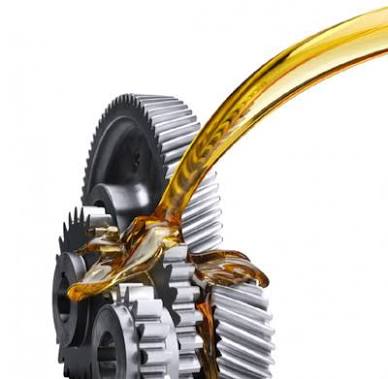
Engine Oil
The engine oil is lifeblood for an engine. Almost everyone is well aware with importance of Engine Oil. Main purpose of engine oil is to:
- Lubricates moving parts in Engine.
- Removes dirt and sludge from Engine.
- Acts as a cooling agent in Engine.
- Reduces mechanical wear and tear in Engine.
Engine oil basically creates a thin film between the closely moving engine parts. In this way metal to metal contact is avoided. It helps Engine parts to move freely, so correct grade of oil is as important as the engine oil itself for an internal combustion engine. Engine oil comes in different grades with different formulations, viscosity and different additives. Car manufacturers recommend different oils for different vehicles. Some vehicles need fully synthetic engine oil, whereas others need semi synthetic engine oil. Some engines also need mineral oils. Every engine needs different viscosity of oil as well. So we must be really careful when selecting engine oil for our vehicle as selecting the wrong engine oil would lead to severe damage to engine and it will also affect the fuel average of your car. For example, the recommended oil grade for your car is 5W-30 fully synthetic and you start using 10W-40 grade oil. For your information 10w-40 is more viscous than 5w-30, so this will put extra load on engine and would lead to more fuel consumption. It should be kept in mind that more viscous oils don’t allow parts to move freely and ultimately this increases fuel consumption.
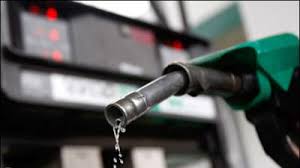
Quality Of Fuel
Most of the modern internal combustion engines are designed to perform with RON-92 fuel. Earlier in Pakistan, we had RON-87 fuel, which we used as regular fuel while RON-92 was sold as Hi-Octane fuel in the market.
Thank God, the Ministry of Petroleum took an initiative and introduced RON-92 as regular fuel and RON-95 as Hi-Octane. PSO launched these two fuels as “Altron Premium” and “Altron X”. So putting low octane fuel in modern engine will obviously decrease fuel average, because low octane fuel can’t deliver required ‘Heat Value’ and to compensate that, engine will consume more fuel. Avoid refilling fuels from road side sellers who keep fuel in drums, these fuels are mostly contaminated and impure. They clog fuel system of your vehicle. Always go to company operated fuel stations such as PSO, Shell and Total. For cleaning of fuel systems and improving fuel average, you may try the following tips:
- Get the fuel filter replaced on time (mostly changed on 80,000 kms)
- Always go to proper fuel stations for re-fuel.
- Add 30% high octane with normal fuel after 3 months, this way fuel injectors automatically clean themselves.
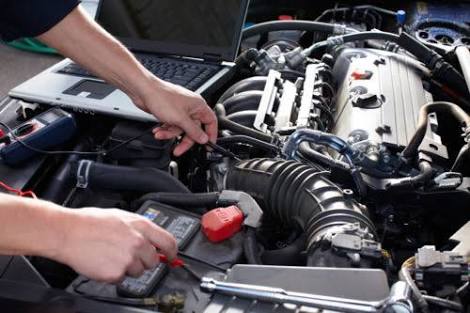
Tuning/Maintenance
Every new vehicle comes with an Owner’s Manual. The purpose of that manual is to provide you with detailed information about vehicle i.e. Features, Troubleshooting, Operation and Maintenance Schedule etc. Maintenance is very important to keep vehicle in working condition. If an engine is not tuned properly or the maintenance is delayed, it will lead to a decline in the engine’s fuel efficiency. Some routine checkups and tuning are:
- Throttle Service
- Valve Clearance Adjustments
- ECU Checkup via Diagnostic Software
- Wheel Alignment
- Wheel Balancing
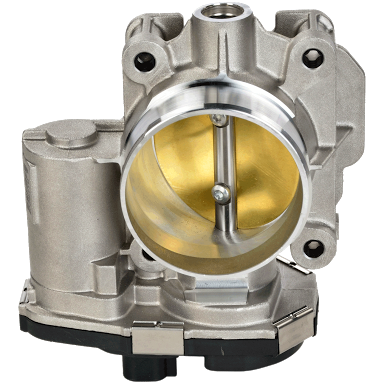
Throttle Body Cleaning
Most of the latest cars are now equipped with Electronic Throttle. It is a butterfly type valve and is installed between air filter and engine air manifold. Manipulation of this device is very fine which results in better fuel economy. This valve regulates air to engine when gas paddle is pressed by driver, a position sensor installed at paddle’s arm adjusts its position.
With the passage of time butterfly valve gets chocked with dust which creates disturbance and resistance in valve operation and results in Low Fuel Average. You will have to press more gas paddle to speed up vehicle and more fuel is consumed. To avoid this, throttle body cleaning is required so that it can work freely.

Valve Clearance Adjustments
There are valves on the engine at intake and exhaust side. They open and close for intake and exhaust of air. With the passage of time, these valves begin to tighten themselves and sometimes it becomes loose. And this causes engine to heat up. Its acceleration will decrease and will consume more fuel. You will also hear louder clicking sound from engine if it requires valve clearance adjustments. This must be done by an expert. They are adjusted by putting in gauge; these valves should neither be too tight nor too loose.
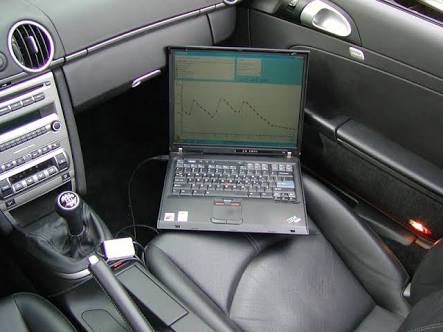
ECU Checkup
World is moving towards automation. Earlier every vehicle was manual, but now each and every parameter of engine is monitored and controlled by different sensors. There are oxygen sensors, air flow sensors, temperature sensors, in short almost every operation in a car is monitored by a sensor. Limiting my topic to Fuel Average, what happens if one of the air sensors malfunctioned? It will obviously disturb every process which will result in bad fuel average. For this purpose vehicle manufacturers have provided Diag Software, which will detect any erratic sensor in your car by running a diagnostic. For this you will have to get it checked by an authorized workshop. They will attach a diagnostic device with port and refresh all sensors and replace if any of them is malfunctioning. This activity will contribute a lot in better fuel mileage.
Importance of “Wheel alignment” and “Wheel balancing” has been discussed earlier.

Replacement Of Parts
Wear and tear of parts is a common thing, but replacing them on time is mandatory to keep your machine in good condition. Company recommends life of routine changing parts, some common spare parts which need replacement are:
- Engine Air Filter
- Spark Plugs
- Oil Filter
Air Filter
Engine air filter is one of the really important components. Engine breathes through this element. It protects engine from dust and provides clean air for combustion. With the time air filter gets choked with dust and mist, which blocks air path and results in poor Fuel Average and slow acceleration. If filter is not replaced on time this chokes throttle body as well. The normal life of air filter is 10,000 kms.
Spark Plugs
Combustion in Engine initiates thru spark plugs. Outdated spark plugs cause knocking issue, poor FUEL economy and poor acceleration. Iridium tip spark plugs last for about 80,000 kms while normal plugs last for 20,000 kms.
Oil filter
Oil filter cleans circulating oil in engine and hence has an important role. On every oil change it must be replaced to increase life of engine.

Driving Habits
If everything in your vehicle is perfect and you are still not getting good fuel average, you must pay attention to your driving style. Some common mistakes which we make are:
- Quick Acceleration
- Sudden Braking
- Overspeeding
- Overloading
- Idle Engine Running for Warming Up of Engine
- Undue Short Trips
- Driving on Small Gear
Tips & Tricks For Better Fuel Average
- Always accelerate gently
- Avoid over speeding, try to drive on economical speed (80km/hr ~95km/hr)
- Avoid idle engine running better to switch off engine on stops more than 30 seconds
- Avoid driving with open windows on above 60km/hr speed because it increases air drag
- Take off your feet from accelerator pedal rather than braking when you see traffic ahead
- Old concept of warming up engine is now outdated. Latest cars now have an Auto Choke option. 15 seconds are more than enough for circulation of oil in all parts of the engine.
You can achieve great numbers if you try to practice. With this I end up my article and I hope there was something for you to learn. I will be happy to see your remarks and suggestions.


